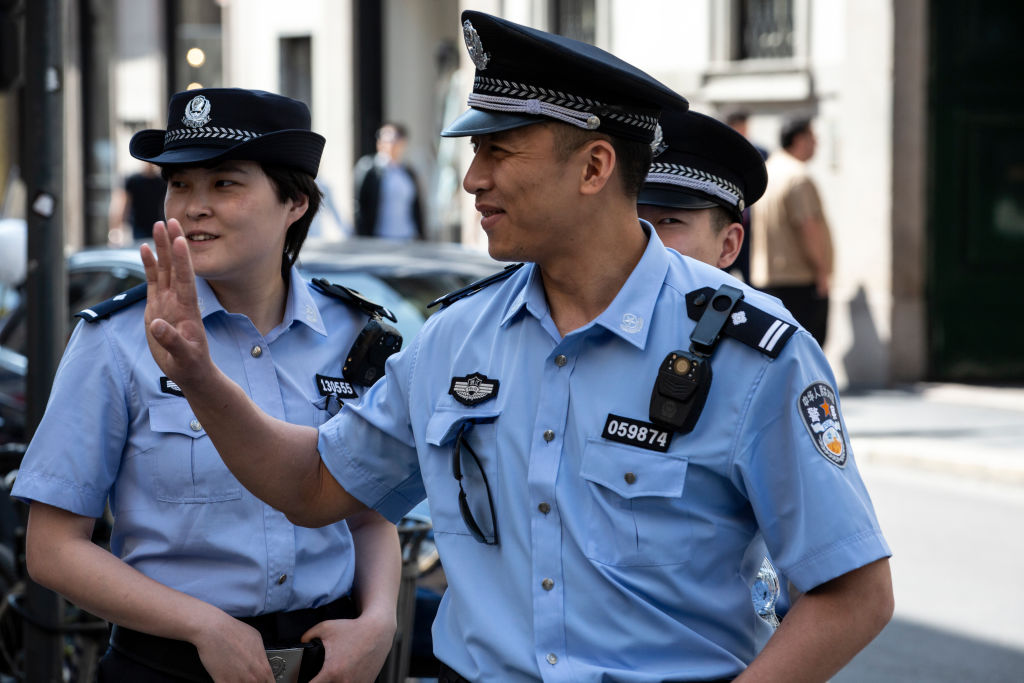In 2022, Chinese President Xi Jinping launched the Global Security Initiative (GSI) to establish his country as a facilitator for improving global security. Critics noted how the same man had used his power to author a comprehensive national security plan that expanded state repression across nearly all aspects of Chinese society.
“The GSI marks a significant shift in Chinese foreign policy,” political scientist Sheena Chestnut Greitens wrote in Foreign Policy magazine that year. “[It] seeks to revise global security governance to make it more compatible with the regime security interests of the Chinese Communist Party.”
Today, observers are pointing out that China is using Africa as a testing ground for the GSI with the aim of building coalitions to align with authoritarian Chinese norms on security and law enforcement.
Human rights groups have raised alarms that recent training programs for African police officers introduce Chinese Communist Party (CCP) tactics and focus heavily on protecting Chinese commercial interests in those countries.
Ilaria Carrozza, a senior researcher at the Peace Research Institute Oslo, said China’s interest in Africa’s police and law enforcement focuses on expanding influence and securing political interests.
“Beijing promotes its policing models, which emphasize state control and security,” she told the South China Morning Post newspaper. “This cooperation strengthens ties with African governments while raising concerns about the potential erosion of democratic principles and human rights on the continent.”
Amodani Gariba, a popular Africa-China blogger, pointed out that China’s security governance models have greater appeal among African ruling parties.
“By using the military to decimate the opposition, ruling parties in some sub-Saharan African countries have effectively created one-party states,” he told the Africa Center for Strategic Studies’ Paul Nantulya for an August 4 report. “China’s ambitions to extend its ties into military cooperation could worsen the already bad governance situation on the continent.”
In recent years, Beijing has been expanding its security collaborations with African countries in the form of bilateral security and policing agreements, cooperation between military and police academies, and training opportunities in China. As recently as 2024, China said it would train 1,000 African police officers.
“These engagements are integrated with deepening political support for selected ruling parties and the promotion of CCP security norms and governance practices,” Nantulya wrote. “China, thus, aims to gain favor with ruling elites, secure preferential treatment for its companies, and enlist African support for its geopolitical ambitions.”
With bilateral agreements, China aims to shape African policing practices, policies and structures. China also uses these pacts to continue to oppress its own dissidents, as it secures extradition treaties to support “apprehending Chinese nationals wanted back in China for one or other reason given by the Chinese government,” Nantulya told the Post.
Some Chinese security efforts on the continent have run into problems and brought unwanted attention. Chinese arms have fallen into the hands of militants in conflict zones such as the Democratic Republic of the Congo, Mali, South Sudan and Sudan’s Darfur region.
Chinese weapons and surveillance equipment also have been used by some African governments to suppress political opponents, and experts repeatedly warn of security and intelligence risks posed by the integration of Chinese technology into national digital ecosystems, critical infrastructure and government networks.
“Such outcomes from expanding Chinese security engagements are fueling negative sentiments by some segments of African public opinion of China, which is often criticized for entrenching illiberal practices in Africa,” Nantulya wrote. “It also poses a dilemma over the divergence in African citizen interests from China’s widening security and geostrategic ambitions on the continent.”
Gordon Moyo, director of the Public Policy Research Institute of Zimbabwe, warned that even in the name of improving security, there is a price to pay for Chinese weapons, tech and partnerships.
“Technology is like bees whose mouths have a sting and honey,” he told the Africa Center. “We need to understand the honey we get from China and the sting that digital technologies from China have on Africa because this has a visible impact on civil liberties.”
Lungani Hlongwa, who served as a junior officer in the South African Navy and writes a blog called the China-Africa Security Radar, urged governments to anticipate and reduce the negative effects of their security partnerships with China.
“The opportunities will depend on whether African countries can exert greater agency,” he told the Africa Center. “They [African stakeholders] can set the agenda by articulating their most pressing security concerns and defining the specific roles they want China to play.”

